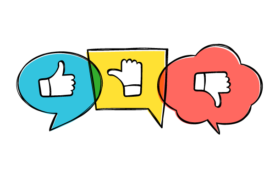-
APS Board of Directors Selects Next APS Executive Director
I am pleased to announce that the Board of Directors has selected Robert E. Gropp, Ph.D., as the next APS Executive Director, effective November 16. Rob’s career spans 26 years of experience with scientific societies, on Capitol Hill, with government agencies, and in academia. Rob comes to APS from the American Institute of Biological Sciences (AIBS), where he has worked for 17 years in a variety of senior-level positions and has served as Executive Director since 2015.
-

Remember That Fake News You Read? It May Help You Remember Even More
Thinking back on a time you encountered false information or “fake news” may prime your brain to better recall truthful memories.
-

Safe Sex or Risky Romance? Young Adults Make the Rational Choice
New research suggests that young adults are instead quite rational when it comes to selecting potential sexual partners.
-

A Cloudy Future: Why We Don’t Trust Algorithms When They’re Almost Always Right
What explains our preference for human skill and instinct over technologies that have proven themselves better than us at driving, performing surgery, and making hiring decisions?
-

New Content From Current Directions in Psychological Science
A sample of articles on the role of situation in psychological science, neuroscience and moral behavior, learning to write, stress, and the role of emotions on attention and work performance.
-
‘I’m Extremely Controversial’: the Psychologist Rethinking Human Emotion
In early March, as the world began to realise that coronavirus wasn’t going to go quietly, psychology professor Lisa Feldman Barrett was thousands of miles away from home. “I went to New Zealand because I was getting an honorary degree,” she tells me over the phone from lockdown in Newton, a leafy suburb of Boston, Massachusetts, where she runs a lab devoted to the study of emotions. She had arranged the trip to coincide with spring break so her college-age daughter could join her and see the sights. But as countries around the world began to impose restrictions, she started having second thoughts. “I was asking myself, should she really be coming, or should we be going home?

